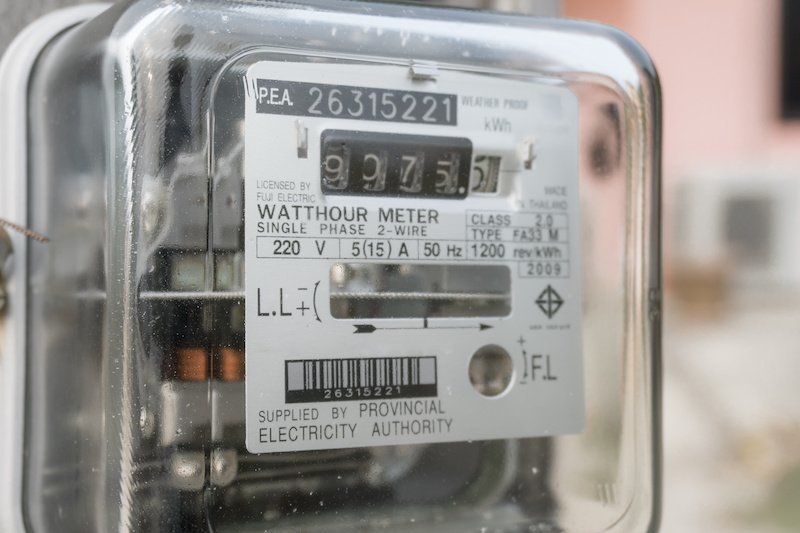
Nashville, Tennessee, is best known for its thriving music scene, rich history, and Southern charm. But beyond its cultural appeal, how does it stack up in terms of affordability? Whether you're considering a move to Music City or just curious about the expenses, understanding the cost of living in Nashville is essential.
For example, while Tennessee is 10%–15% more affordable than most states, Nashville is only 1% below the national average cost of living.
From housing and utilities to groceries and entertainment, this guide breaks down what it really costs to live in Nashville and how it compares to national averages.
Quick Nashville Cost of Living Highlights
- Median home price in Nashville: $450,000–$500,000
- Average rent for one-bedroom apartment: $1,660
- Typical electricity bill: $190/month
- Average household grocery bill: $1,200/month
- Childcare for one toddler: $867/month
- Median household income in Nashville: $75,200
Housing in Nashville
Compared to the rest of Tennessee, Nashville is an expensive city to buy a house—but in terms of major cities in America, it can be highly economical.
Median Home Price
The median list price for all homes in Nashville, including single-family homes, condos, and townhomes, is typically between $450,000 and $500,000.

The median list price for single-family homes in Nashville ranges from the high $400s to the low $500s, somewhat higher than the average for all homes. However, the median list price for a Nashville condo isn’t much cheaper when it comes down to it, as it typically ranges from the low-to-mid $400s. On the upside, both prices are lower than what one could expect to pay in comparison to Austin and other major cities.
Median list prices for homes in Nashville vary, depending on location. In popular luxury neighborhoods like Green Hills, the median list price is around $1 million, while the median list price in the Inglewood neighborhood is about $575,000.
On the flip side, a lower-priced neighborhood like Woodbine has a median home price in the high $300s to low $400s, and Cumberland Gardens is even cheaper with home prices typically in the mid-$300s.
If you're interested in buying a home in Nashville,
The Ashton Real Estate Group can help!
Median Rent
Overall, the median rent in Nashville is around $1,900 per month.
- Average rent for a studio apartment: around $1,550
- Average rent for a one-bedroom: around $1,660
- Average rent for a two-bedroom: around $2,100
- Average rent for a three-bedroom: around $2,600
Compare these to the national average rent for a one-bedroom apartment, which is around $1,540 per month.
If you’re looking for cheap rent, try neighborhoods like Airport Estates, Bayview, and Belair, which each average around $1,360. On the other hand, luxury apartments can be found in the Burton Valley and Forest Hills neighborhoods for around $2,360.
Utilities

Energy efficiency improvements like adding insulation can go a long way in your new home. Tennessee’s average power bills are around $135 per month despite the low electricity rates provided by the Tennessee Valley Authority. In Nashville, that average bill can reach about $190.
Tennessee's average monthly water bill is roughly $36. Compared to the other 49 states, Tennessee ranks almost exactly in the middle.
Internet service averages about $70 a month, while mobile phone service for unlimited talk, text, and data runs about $45 a month.
The average cost of homeowner's insurance in Nashville varies by provider and coverage, but homeowners can typically expect to pay $2,400–$2,500 per year, or around $200 per month. The average cost of renter's insurance in Tennessee is about $24 per month or $290 per year. This is slightly higher than the average across the country, which is about $15–$20 per month.
Food in Nashville
Food costs in Nashville are right on par with the national average and slightly more expensive than the state average.
Groceries
The average Nashville household can expect to pay around $1,200 or 15% of their income on groceries.

Monthly grocery costs vary widely depending on personal preferences and the number of people in a household. More people means buying more food, of course, but often results in a lower cost per person than an individual living alone. For example, an adult man living alone may spend between $360 and $525 per month, while a family with two adults and one child may spend between $860 and $1,320 ($286.67 and $440 per person).
Residents have found that the grocery stores with the best value in Nashville include H.G. Hill Urban Market, United Grocery Outlet, ALDI, Piggly Wiggly, and Publix.
Restaurants

As with any city, the cost of dining out in Nashville varies depending on the restaurant. A combo meal at a fast-food restaurant will be about $10, while a meal at an average inexpensive sit-down restaurant will run about $18 without the tip. A meal for two at a mid-range restaurant will cost right around $60 before the tip.
Here are some more concrete examples from popular restaurants in Nashville:
- Southern Omelet at Loveless Café: $11
- Barbecue Salmon Fillet at Fleming’s Steak House: $48
- 6 Jumbo Wings at Pepperfire Hot Chicken: $13.99
- Beer at Margot Café & Bar: $8
Transportation in Nashville
Car insurance premiums in Tennessee run about $2,090 per year for full coverage, while minimum liability costs around $511. Drivers in Nashville pay more on average, up to around $2,500. USAA, Travelers, and Penn National tend to have the cheapest rates among local providers.
The average price of gas in Tennessee is typically cheaper than the national average, even in major cities like Nashville. Gas in Nashville typically costs around $2.80–$2.90 per gallon.

WeGo Public Transit is the primary public transportation provider covering the Nashville metro area. An unlimited two-hour pass is $2, but children under four ride for free when with a paying passenger, and both seniors ages 65 and older and youths ages 19 and younger pay $1. There are also all-day passes available for $4 and 31-day passes available for $65.
For commuters, the WeGo Star train can be a better way to get around. The WeGo Star Train makes rounds between seven stations, which can be more efficient for those who work a greater distance from where they live. The price per ticket will vary depending on where the ticket is purchased, but purchasing tickets in advance will always offer a discounted price. Passengers can still purchase tickets at the platform, however, typically for $5.25.
Nashville Healthcare

The average cost of a health insurance plan in Tennessee is about $560 per month for a silver plan for a 40-year-old. Nashville's cost of healthcare is roughly the same as the state and national average, but it can vary widely depending on the insured’s age and desired coverage.
The average cost of a doctor's visit is around $130. A visit to the dentist costs $106 on average, while a trip to the optometrist will cost around $120. A standard vet visit for a dog or cat will cost around $65, but additional services like vaccinations and tests will increase the bill.
There are more than eight hospitals in the Nashville metro area, including Baptist Hospital, Metro National General Hospital, and Vanderbilt University Hospital.
Nashville Childcare
There are about 2,300 childcare agencies in Nashville. The cost of childcare goes up depending on the age of the child. Infant care in Davidson County averages about $11,325 annually, versus about $9,040 for a toddler. This equates to about $944 or $753 per month.

Childcare in Nashville specifically is even higher, about 3% higher than the national average and 12% higher than the Tennessee average. Childcare costs in Nashville average about:
- Infant care: $933/month
- Toddler care: $867/month
- Child age 2+: $705/month
The typical cost of hiring a nanny in Nashville is about $19 per hour. However, rates vary depending on the nanny's experience, the number of children, and their ages.
Nashville Entertainment

Creativity is at the heart of Nashville, with no shortage of things to do or see. From music, culture, and the arts to sporting events, shopping, nightlife, and golf courses, visitors and residents alike have plenty to choose from in Music City.
The Country Music Hall of Fame is located in downtown Nashville and dubbed the "Smithsonian of Country Music." Ticket prices vary depending on the tour experience chosen, but general admission starts at $29.95 for adults and $19.95 for children ages 6 to 12.
The Grand Ole Opry features live shows of country stars and up-and-coming talent. Show tickets depend on the show and where you sit and can range from roughly $60 to over $200.
The Belcourt Theatre screens independent new releases and documentaries, as well as foreign and classic films. General admission tickets are $13.50 for adults.
Some free things to do in Nashville include:
- Weekend concerts at Arrington Vineyards, April through October
- Musician’s Corner music series at Centennial Park, summer and fall
- Tennessee Agricultural Museum
- First Saturday Art Crawl
- Searching for murals
- Vanderbilt Fine Arts Gallery
- Tennessee State Museum
- Fort Nashborough Interpretive Center
- Nashville Public Library events
Salary in Nashville
Nashville’s median household income is around $75,200, significantly higher than the Tennessee median household income of around $67,100. The average hourly wage in the Nashville metro area is around $29.59, translating to an annual income of around $59,180. Keep in mind that there is no state income tax in Tennessee.

Nashville's biggest industries include healthcare, advanced manufacturing, finance, higher education, insurance, music and entertainment, printing and publishing, technology, and tourism. Unemployment hovers around 2.9%, significantly below the national rate of 4.1%.
In recent years, Nashville has made many lists and rankings related to its job market business environment, from Best Cities for Young Adults to Small Business Friendliness.
Top employers include Vanderbilt University and Medical Center, Nissan North America, HCA Healthcare., Amazon, Ascension Saint Thomas, Bridgestone Americas, Tractor Supply Company, Parallon, Asurion, JLL, and Cisco.
Is Nashville Affordable for You?
Nashville offers a dynamic blend of culture, job opportunities, and Southern hospitality, but its cost of living varies depending on your lifestyle and budget. While housing prices have risen in recent years, the city's lack of state income tax and relatively affordable utilities can help balance expenses. Dining, entertainment, and transportation costs are also factors to consider when deciding if Music City is the right financial fit for you.
Ultimately, whether Nashville is affordable depends on your income, spending habits, and priorities. If you're drawn to its vibrant atmosphere and growing economy, careful budgeting can make living here a reality. Ready to make the move? Weigh your costs and explore your options to see if Nashville aligns with your financial goals.
If the opportunities of Nashville excite you, contact The Ashton Real Estate Group of RE/MAX Advantage with Nashville's MLS at (615) 603-3602 to get in touch with local real estate agents who can help find the perfect Nashville home for you today.



